Datasheet
Year, pagecount:2014, 4 page(s)
Language:English
Downloads:4
Uploaded:May 07, 2018
Size:527 KB
Institution:
-
Comments:
Attachment:-
Download in PDF:Please log in!
Comments
No comments yet. You can be the first!Most popular documents in this category
Content extract
Source: http://www.doksinet The Marine Socio-Economics Project (MSEP) is a project funded by The Tubney Charitable Trust and coordinated by NEF (the new economics foundation) in partnership with the WWF, the MCS, the RSPB, and The Wildlife Trusts. The project aims to build socio-economic capacity and cooperation between NGOs and aid their engagement with all sectors using the marine environment. How important is fishing to the UK economy? Fishing has been a livelihood for coastal people since the UK was first populated and has been a constant feature of our island nation’s history. Over recent years, the number of fishermen has been decreasing throughout the UK, but despite this trend, the employment as well as the social function of fishing (also in terms of the identity of coastal towns as ‘fishing towns’) remains important in many areas. When looked at in terms of overall employment, revenue, and contribution to the gross domestic product (GDP) however, fishing does not
feature as one of the UK’s top industries or sectors. In 2012, there were 12,445 fishermen in the UK, although the exact numbers are hard to ascertain with any level of certainty as many are part-time or irregular. • The UK fishing fleet comprises 6,406 vessels overall in the capture sector. • A further 12,000 people are employed in the processing industry. • The total catch of fish and shellfish landed into the UK was 627,000 tonnes. • The first point-of-sale value of those landings was £770 million.1 So, how much did fishing contribute to the overall economy of the UK in 2012? 1 1 http://www.marinemanagementorguk/fisheries/statistics/ annual.htm GDP is a key indicator of the state of the whole economy. In Figure 1, the contribution by sector in the UK economy is presented.2 Within the entire UK economy, the sector including ‘agriculture, fishing and forestry’ is a minute part of the UK’s GDP. All forms of fishing taken together are 007% of GDP (rounded up
to 0.2% in Figure 1) Within that, capture/marine fisheries are 0.05% and aquaculture is 0.02% of total UK GDP Table 1 shows Gross Value Added (GVA) for fishing over the last decade. GVA measures the contribution to the economy of each individual producer, industry or sector in the UK. The contribution has oscillated but has always been around the 5% mark. GVA + taxes on products subsidies on products = GDP How important is fishing as an employer in the UK – the Office of National Statistics (ONS) There were around 12 450 active fishermen in 2012. Of these, 5900 were based in England (down 9% since 2002), 1000 in Wales (down 25%), 4700 in Scotland (down 18%), and 800 in Northern Ireland (up 32%). Part-time fishermen accounted for 17% of the total, down 2% points over the last ten years. 2 http://s.bsdnet/nefoundation/default/page/file/ 800a24dd60a18be7ea vem6bnetw.pdf MSEP Facts & Figures Series 1: How important is fishing to the UK economy? Source: http://www.doksinet Figure
1. Contribution to UK GDP by sector The ‘pie’ on the left is UK contribution to GDP by sector and the ‘pie’ on the right is the contribution by areas within the sector (agriculture, forestry and fishing); the percentages reflect contribution to overall GDP. Transport & Storage Construction 6.7% 7.5% Administrative & support 8.5% Freshwater fishing 0.001% Marine fishing 0.049% Other 21.6% Agriculture, forestry & fishing 0.2% Information & Communication 9.6% Forestry 0.043% Wholesale 17.3% Professional, scientific & technical 12.1% Marine aquaculture 0.021% Freshwater aquaculture 0.003% Crop & animals 0.056% Manufacturing 16.3% Table 1. GVA for fishing: 2002 to 2012 £ million (unless otherwise specified) 2002 2003 2004 2005 2006 2007 2008 2009 2010 2011 2012 4.3% 5.3% Percentage contribution of GVA from fishing to GVA for agriculture, hunting, forestry and fishing Current prices (%) 4.6% 4.2% 3.9% 5.7% 6.1% 6.1% 5.6% 6.7%
5.8% Source: Office for National Statistics 2 3 http://www.onsgovuk/ons/publications/re-reference-tables html?edition=tcm%3A77-276583#tab-Jobs-tables 4 JOBS03: Employee jobs by industry. Date of Publication:11 September 2013. Date of Next Publication:18 December 2013 (Excel sheet 971Kb) 18000 16000 14000 12000 10000 8000 6000 4000 2000 2009 2008 2007 2006 2005 2004 2003 2002 2001 0 2000 Over the period 2003–2013 the number of active fishermen overall has declined from over 14,000 as a result of declining fishing Figure 2. Jobs in the UK fishing industry (England and Scotland) 1999–2009. 1999 Crop and animal production, hunting, and related service activities, by comparison employ around 192,000 people.3 As a further comparison, in June 2013, 111,000 people worked in publishing (nearly ten times more than work in fishing), 52,000 worked as vets (over three times as many), and there were over 2.5 million people working in education Out of a total of approximately
28.1 million employees within the UK, based on these statistics active fishermen make up 0.044% of employees.4 UK Overall Scotland Source: Office for National Statistics / Marine Management Organisation MSEP Facts & Figures Series 1: How important is fishing to the UK economy? Source: http://www.doksinet Table 2. Wages in fishing Total (euro rounded) > 10 (euro rounded) < 10 (euro rounded) > 10 (%) < 10 (%) Wages and salaries of crew 218 million 190 million 27.7 million 87% 13% Unpaid labour value 9.7 million - 9.7 million 0% 100% Full-time equivalent harmonised 11,277 5,605 5,671 50% 50% opportunities, decommissioning schemes, and uncertainty over the future. As well as an underlying downwards trend in the size of the fleet associated with reduced fishing opportunities, UK fisheries administrations have operated decommissioning exercises (2001/2002, 2003, 2007, and 2008/2009). These exercises aimed to remove some capacity and effort from UK
fisheries to help ensure sustainability, and to allow vessel owners to take a business decision on whether or not to remain in the fishery under the terms of fishery management plans.5 What do fishermen earn? Fishing businesses The total number of fishing enterprises in the UK fleet was listed by the STECF in 2012. It concluded that the number of fishing enterprises in the UK fleet totaled 4336, with the vast majority (96%) owning a single vessel.7 The major factors causing employment to decrease relate to the declining number of fishing vessels as described and a continued substitution of capital for labour8 (meaning that vessel owners are investing in technology, for example, rather than employing more people). This trend is likely to continue in the UK fishing industry going forward. According to the Scientific, Technical, and Economic Committee for Fisheries (STECF)6 fishing wages for >10m vessel crews totalled around £160 million and £23 million for the <10m vessel
crews. In terms of how that share of wages was divided, the STECF shows that 87% of the wages went to salaries of crew in the >10m sector. When harmonised to reflect full time equivalent (FTE) jobs, the breakdown was an even 50:50 split between >10m and <10m vessel crews. 3 5 http://www.marinemanagementorguk/fisheries/statistics/ documents/ukseafish/2012/final-1.pdf 6 https://stecf.jrceceuropaeu/ 7 http://stecf.jrceceuropaeu/documents/43805/581354/ 2013-09 STECF+13-15+-+AER+EU+Fleet+2013 JRC84745.pdf 8 http://stecf.jrceceuropaeu/documents/43805/581354/ 2013-09 STECF+13-15+-+AER+EU+Fleet+2013 JRC84745.pdf 9 http://www.bbccouk/programmes/b01bmtfx/features/ contrast-fishermen MSEP Facts & Figures Series 1: How important is fishing to the UK economy? Source: http://www.doksinet Useful further information: To read more about scrapping and temporary cessation measures see http://ec.europaeu/ fisheries/documentation/studies/cessation/
files/201312-cessation-annex9-uk en.pdf According to a BBC documentary, a >10m trawler man can earn between £10,000 and £100,000 per year, depending on how good the fishing is, the type of boat they have and the area in which they fish.9 For details about the business of fishing told first-hand, Seafish have produced a short video of interviews with skippers in various parts of the fishing industry and UK. Available here: https://www.youtubecom/ watch?v=7pOzP29N3HI Briefings on capture fisheries 1. UK fisheries: An overview 2. How the EU decides how much fish to catch 3. What are producer organisations (POs) and how is quota shared in the UK? 3b. An overview of UK fishing quota (FQA) ownership 4. Fishing limits and the sharing of catches among EU member states 5. Fleet structure and economic performance 6. Composition of UK landings 7. The regional breakdown of UK fisheries: The importance of Scotland 8. How important is fishing to the UK economy? 9. What are
fishing effort and fishing capacity? Series 1 written and researched by Chris Williams (Marine Socio-Economics Project Coordinator at NEF). All the data examined in this series comes from the Marine Management Organisation(MMO) or through the Office for National Statistics (ONS) or the EU Scientific, Technical and Economic Committee for Fisheries (STECF) and Eurostat unless otherwise referenced. These data sources can be found on the MSEP website: http://www.mseprojectnet/data-sources 9 4 http://www.bbccouk/programmes/b01bmtfx/features/ contrast-fishermen Published by the New Economics Foundation (NEF), May 2014. www.neweconomicsorg Tel: 020 7820 6300 Registered charity number 1055254
feature as one of the UK’s top industries or sectors. In 2012, there were 12,445 fishermen in the UK, although the exact numbers are hard to ascertain with any level of certainty as many are part-time or irregular. • The UK fishing fleet comprises 6,406 vessels overall in the capture sector. • A further 12,000 people are employed in the processing industry. • The total catch of fish and shellfish landed into the UK was 627,000 tonnes. • The first point-of-sale value of those landings was £770 million.1 So, how much did fishing contribute to the overall economy of the UK in 2012? 1 1 http://www.marinemanagementorguk/fisheries/statistics/ annual.htm GDP is a key indicator of the state of the whole economy. In Figure 1, the contribution by sector in the UK economy is presented.2 Within the entire UK economy, the sector including ‘agriculture, fishing and forestry’ is a minute part of the UK’s GDP. All forms of fishing taken together are 007% of GDP (rounded up
to 0.2% in Figure 1) Within that, capture/marine fisheries are 0.05% and aquaculture is 0.02% of total UK GDP Table 1 shows Gross Value Added (GVA) for fishing over the last decade. GVA measures the contribution to the economy of each individual producer, industry or sector in the UK. The contribution has oscillated but has always been around the 5% mark. GVA + taxes on products subsidies on products = GDP How important is fishing as an employer in the UK – the Office of National Statistics (ONS) There were around 12 450 active fishermen in 2012. Of these, 5900 were based in England (down 9% since 2002), 1000 in Wales (down 25%), 4700 in Scotland (down 18%), and 800 in Northern Ireland (up 32%). Part-time fishermen accounted for 17% of the total, down 2% points over the last ten years. 2 http://s.bsdnet/nefoundation/default/page/file/ 800a24dd60a18be7ea vem6bnetw.pdf MSEP Facts & Figures Series 1: How important is fishing to the UK economy? Source: http://www.doksinet Figure
1. Contribution to UK GDP by sector The ‘pie’ on the left is UK contribution to GDP by sector and the ‘pie’ on the right is the contribution by areas within the sector (agriculture, forestry and fishing); the percentages reflect contribution to overall GDP. Transport & Storage Construction 6.7% 7.5% Administrative & support 8.5% Freshwater fishing 0.001% Marine fishing 0.049% Other 21.6% Agriculture, forestry & fishing 0.2% Information & Communication 9.6% Forestry 0.043% Wholesale 17.3% Professional, scientific & technical 12.1% Marine aquaculture 0.021% Freshwater aquaculture 0.003% Crop & animals 0.056% Manufacturing 16.3% Table 1. GVA for fishing: 2002 to 2012 £ million (unless otherwise specified) 2002 2003 2004 2005 2006 2007 2008 2009 2010 2011 2012 4.3% 5.3% Percentage contribution of GVA from fishing to GVA for agriculture, hunting, forestry and fishing Current prices (%) 4.6% 4.2% 3.9% 5.7% 6.1% 6.1% 5.6% 6.7%
5.8% Source: Office for National Statistics 2 3 http://www.onsgovuk/ons/publications/re-reference-tables html?edition=tcm%3A77-276583#tab-Jobs-tables 4 JOBS03: Employee jobs by industry. Date of Publication:11 September 2013. Date of Next Publication:18 December 2013 (Excel sheet 971Kb) 18000 16000 14000 12000 10000 8000 6000 4000 2000 2009 2008 2007 2006 2005 2004 2003 2002 2001 0 2000 Over the period 2003–2013 the number of active fishermen overall has declined from over 14,000 as a result of declining fishing Figure 2. Jobs in the UK fishing industry (England and Scotland) 1999–2009. 1999 Crop and animal production, hunting, and related service activities, by comparison employ around 192,000 people.3 As a further comparison, in June 2013, 111,000 people worked in publishing (nearly ten times more than work in fishing), 52,000 worked as vets (over three times as many), and there were over 2.5 million people working in education Out of a total of approximately
28.1 million employees within the UK, based on these statistics active fishermen make up 0.044% of employees.4 UK Overall Scotland Source: Office for National Statistics / Marine Management Organisation MSEP Facts & Figures Series 1: How important is fishing to the UK economy? Source: http://www.doksinet Table 2. Wages in fishing Total (euro rounded) > 10 (euro rounded) < 10 (euro rounded) > 10 (%) < 10 (%) Wages and salaries of crew 218 million 190 million 27.7 million 87% 13% Unpaid labour value 9.7 million - 9.7 million 0% 100% Full-time equivalent harmonised 11,277 5,605 5,671 50% 50% opportunities, decommissioning schemes, and uncertainty over the future. As well as an underlying downwards trend in the size of the fleet associated with reduced fishing opportunities, UK fisheries administrations have operated decommissioning exercises (2001/2002, 2003, 2007, and 2008/2009). These exercises aimed to remove some capacity and effort from UK
fisheries to help ensure sustainability, and to allow vessel owners to take a business decision on whether or not to remain in the fishery under the terms of fishery management plans.5 What do fishermen earn? Fishing businesses The total number of fishing enterprises in the UK fleet was listed by the STECF in 2012. It concluded that the number of fishing enterprises in the UK fleet totaled 4336, with the vast majority (96%) owning a single vessel.7 The major factors causing employment to decrease relate to the declining number of fishing vessels as described and a continued substitution of capital for labour8 (meaning that vessel owners are investing in technology, for example, rather than employing more people). This trend is likely to continue in the UK fishing industry going forward. According to the Scientific, Technical, and Economic Committee for Fisheries (STECF)6 fishing wages for >10m vessel crews totalled around £160 million and £23 million for the <10m vessel
crews. In terms of how that share of wages was divided, the STECF shows that 87% of the wages went to salaries of crew in the >10m sector. When harmonised to reflect full time equivalent (FTE) jobs, the breakdown was an even 50:50 split between >10m and <10m vessel crews. 3 5 http://www.marinemanagementorguk/fisheries/statistics/ documents/ukseafish/2012/final-1.pdf 6 https://stecf.jrceceuropaeu/ 7 http://stecf.jrceceuropaeu/documents/43805/581354/ 2013-09 STECF+13-15+-+AER+EU+Fleet+2013 JRC84745.pdf 8 http://stecf.jrceceuropaeu/documents/43805/581354/ 2013-09 STECF+13-15+-+AER+EU+Fleet+2013 JRC84745.pdf 9 http://www.bbccouk/programmes/b01bmtfx/features/ contrast-fishermen MSEP Facts & Figures Series 1: How important is fishing to the UK economy? Source: http://www.doksinet Useful further information: To read more about scrapping and temporary cessation measures see http://ec.europaeu/ fisheries/documentation/studies/cessation/
files/201312-cessation-annex9-uk en.pdf According to a BBC documentary, a >10m trawler man can earn between £10,000 and £100,000 per year, depending on how good the fishing is, the type of boat they have and the area in which they fish.9 For details about the business of fishing told first-hand, Seafish have produced a short video of interviews with skippers in various parts of the fishing industry and UK. Available here: https://www.youtubecom/ watch?v=7pOzP29N3HI Briefings on capture fisheries 1. UK fisheries: An overview 2. How the EU decides how much fish to catch 3. What are producer organisations (POs) and how is quota shared in the UK? 3b. An overview of UK fishing quota (FQA) ownership 4. Fishing limits and the sharing of catches among EU member states 5. Fleet structure and economic performance 6. Composition of UK landings 7. The regional breakdown of UK fisheries: The importance of Scotland 8. How important is fishing to the UK economy? 9. What are
fishing effort and fishing capacity? Series 1 written and researched by Chris Williams (Marine Socio-Economics Project Coordinator at NEF). All the data examined in this series comes from the Marine Management Organisation(MMO) or through the Office for National Statistics (ONS) or the EU Scientific, Technical and Economic Committee for Fisheries (STECF) and Eurostat unless otherwise referenced. These data sources can be found on the MSEP website: http://www.mseprojectnet/data-sources 9 4 http://www.bbccouk/programmes/b01bmtfx/features/ contrast-fishermen Published by the New Economics Foundation (NEF), May 2014. www.neweconomicsorg Tel: 020 7820 6300 Registered charity number 1055254
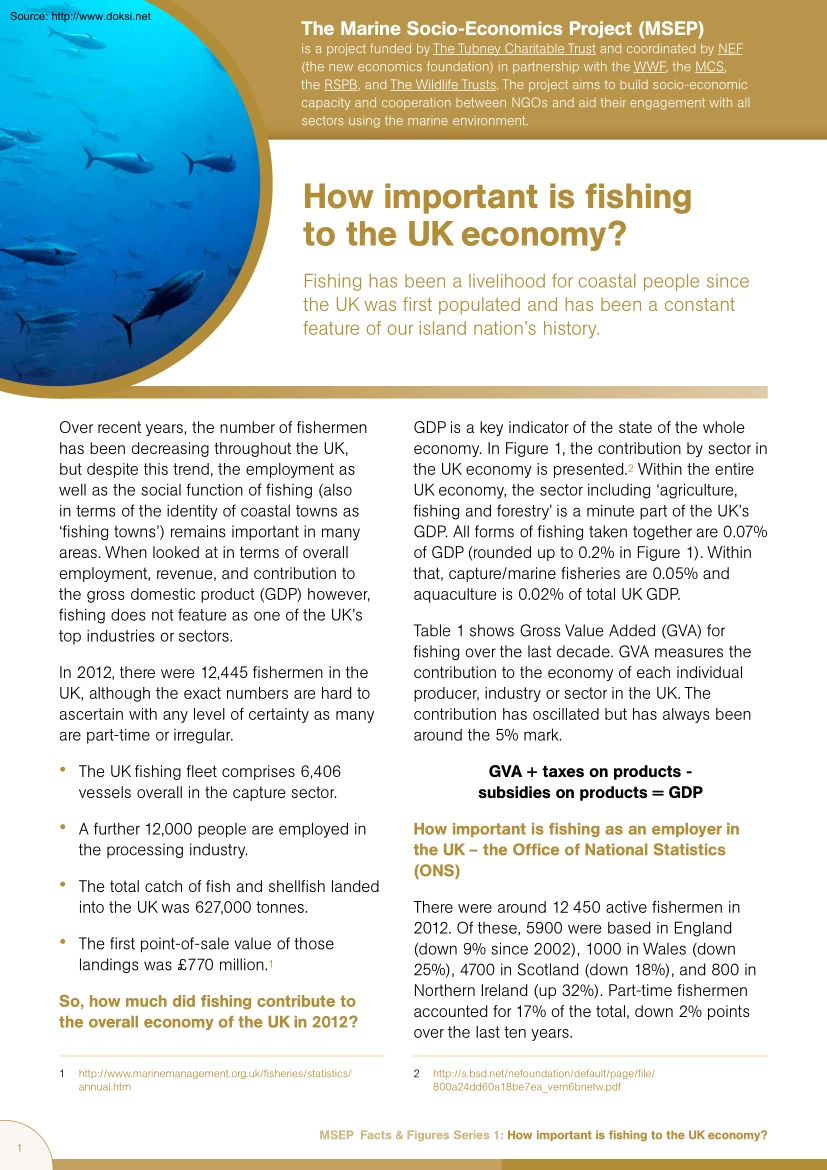
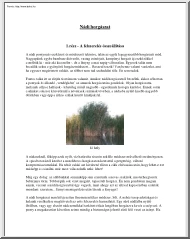
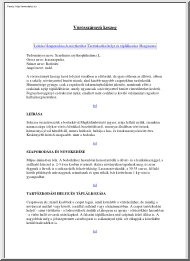
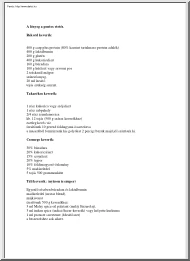
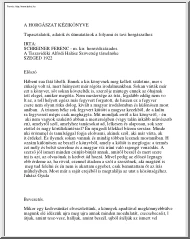
 Just like you draw up a plan when you’re going to war, building a house, or even going on vacation, you need to draw up a plan for your business. This tutorial will help you to clearly see where you are and make it possible to understand where you’re going.
Just like you draw up a plan when you’re going to war, building a house, or even going on vacation, you need to draw up a plan for your business. This tutorial will help you to clearly see where you are and make it possible to understand where you’re going.